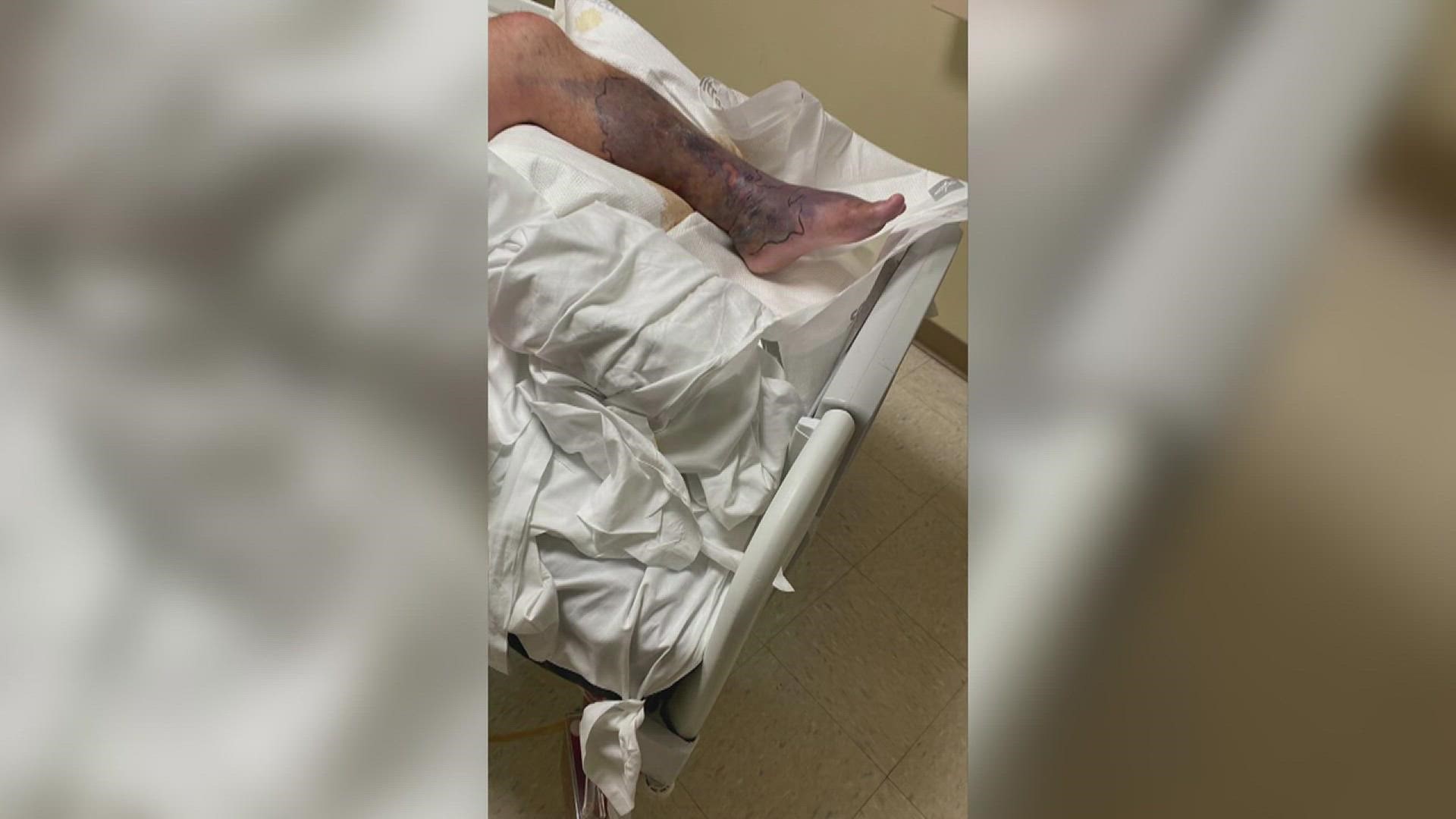BRIDGE CITY, Texas — A man from Bridge City is recovering from getting his leg amputated after lab tests confirm he was exposed to flesh-eating bacteria.
The Abney family tells 12news their loved one, 54-year-old Carlton Abney, came in contact with the bacteria on Saturday, September 17 while in Cow Bayou near their home.
The family has been swimming, boating and fishing in the Cow Bayou for decades.
"He (the doctor) told us he had two hours to live and we had to amputate the leg at the knee and that was a 50/50 chance," said Colton Abey.
Colton says the bacteria started shutting his dad's body down.
"He started having kidney failure, liver failure and everything just shutting down. It went from something that we thought was nothing to major," Colton said.
Colton says it took doctors two days to realize what was wrong. They then found out this was a classic case of "for vibrio vulnificus infection", commonly known as a flesh-eating bacteria.
"It is very common in Gulf of Mexico because of the warm temperatures because of the warmer water temperature and it is very common and it is in increased in incidence during summer months," said Lamar University Biology Professor Dr. Ashwini Kucknoor.
She adds that while it's not common to be infected with the bacteria, they thrive in the Southeast Texas environment.
"They're always there. It just matters whether the numbers are very high, that where you're wherever you're swimming or doing your water activity that you're exposed to more of it," Dr. Kucknoor said.
The Texas Department of State Health says they get an average of 33 cases per year across the state and because it's so rare, it's not something that's monitored.
That's something the Abney family wants to change.
"I feel like there's people that need to be held accountable, especially for the situation of at hand and that they're supposed to be testing the waters listening, keeping up with this stuff, checking this stuff, and they're not, " Colton said.
Carlton's wife tells 12News she will continue advocating for local officials to monitor and warn people about bacteria levels in recreational areas.
Carlton remains in the intensive care unit of Christus St. Elizabeth Hospital in Beaumont.
Individuals can take the following precautions to protect themselves against waterborne illness when recreating in natural waters:
- Avoid getting the water in your mouth, and do not drink or swallow the water.
- Reduce the risk of water going up your nose by holding your nose shut or using nose clips when taking part in water-related activities in bodies of warm freshwater such as lakes, rivers, or hot springs. This is particularly important to reduce risk of infection by the naturally-occurring amoeba, Naegleria fowleri.
- Avoid digging in or stirring up the sediment while taking part in water-related activities in shallow, warm freshwater areas.
- Do not swim in natural waters, whether fresh or salt water, if you have open wounds or sores.
- Shower with soap and water after swimming or playing in the water.
- Promptly tend to any wounds, cuts or abrasions you get while in or near the water: thoroughly wash the wound with clean, potable water and soap, and seek a doctor’s care if a rash or swelling develops around the wound or it appears infected.
- Seek a doctor’s care immediately if you become ill or develop symptoms of an infection.
Also on 12NewsNow.com...

